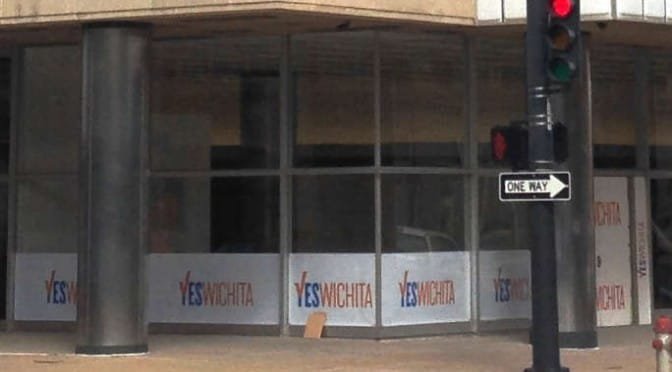Tag: Elections
-

WichitaLiberty.TV: The proposed one cent per dollar Wichita sales tax
In this episode of WichitaLiberty.TV: We’ll talk about the proposed Wichita sales tax, including who pays it, and who gets special exemptions from paying it. Then, can we believe the promises the city makes about accountability and transparency? Finally, has the chosen solution for a future water supply proven itself as viable, and why are…
-

By threatening an unwise alternative, Wichita campaigns for the sales tax
To pay for a new water supply, Wichita gives voters two choices and portrays one as exceptionally unwise. In creating this either-or fallacy, the city is effectively campaigning for the sales tax.
-

Should Wichita expand a water system that is still in commissioning stage?
In this script from the next episode of WichitaLiberty.TV, I report my concerns about rushing a decision to expand a water production system that has not yet proven itself.
-

For Wichita Chamber of Commerce chair, it’s sales tax for you, but not for me
A Wichita company CEO applied for a sales tax exemption. Now as chair of the Wichita Metro Chamber of Commerce, he wants you to pay more sales tax, even on the food you buy in grocery stores.
-

Kansas sales tax on groceries is among the highest
Kansas has nearly the highest statewide sales tax rate for groceries. Cities and counties often add even more tax on food.
-

Wichita ASR water recharge project: The statistics
As Wichita voters consider spending $250 million expanding a water project, we should look at the project’s history. So far, the ASR program has not performed near expectations, even after revising goals downward.
-

Has the Wichita ASR water project been working?
Here is the cumulative production of the Wichita ASR project compared with projections. The city and the “Yes Wichita” campaign say the ASR project is proven and is working. Do you agree?
-

Wichita geologist sees problems with city water plan
Recently, the city revealed enhancement of the aquifer storage and recovery project (ASR) as the preferred new supply. Although enhancement of ASR may ultimately prove a viable option, there are still significant uncertainties, writes geologist Karma Mason.
-

Wichita water rates seen as not encouraging conservation
Wichita water rates are about average for households using modest amounts of water. But households using a lot of water pay much less than average, leading us to wonder if Wichita could adjust its rates to encourage conservation and/or generate more revenue.
-

Is Wichita campaigning for the sales tax?
To pay for a new water supply, Wichita gives voters two choices and portrays one as exceptionally bad and unwise. This either-or fallacy created by the city is a form of campaigning for the sales tax in disguise.
-

Wichita city hall doesn’t need a sales tax to burn off the fog
As Wichita voters consider promises of transparency and reporting regarding job creation, the city fails to make even the most basic information available.
-

In Wichita, pro-sales tax campaign group uses sales tax-exempt building as headquarters
While “Yes Wichita” campaigns for higher sales taxes, it operates from a building that received a special exemption from paying sales tax.